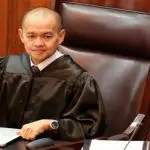On Wednesday, Department of Social Welfare and Development Secretary Judy Taguiwalo expressed that the proposal to alter the minimum age of criminal responsibility to 9 years old is “anti-poor.”
During the hearing of the House justice subcommittee on correctional reforms, Taguiwalo, as well as the Commission on Human Rights (CHR) Chairperson Chito Gascon and non-governmental organizations, are in opposition to lower the minimum age of criminal responsibility to 9 from 15 years old.
In her position paper which was presented by social welfare officials present at the hearing, Taguiwalo claimed, “Lowering the minimum age of criminal responsibility is anti-poor.”
According to date she cited, children in conflict with the law (CICL) in “greater majority, come from lower-income families where parents are either unemployed and/or where a greater number of siblings result in even lesser per-capita resources.”
[ads1]
Taguiwalo added that reducing the minimum age of criminal responsibility “has never resulted in lower crime rates”, “The Philippine experience, and the experience of other countries attest to this fact.”
Taguiwalo and Gascon pronounced, in their position papers presented to the House panel, that this proposal is in violation of the fundamental principles of social protection for children.
Gascon articulated that “the principle of protecting a child’s well-being and development is entwined with that of their best interest.”
Alvarez argued that the aim of the proposal is to rehabilitate juvenile offenders and protect them from being exploited by syndicates to perform crimes. However, Taguiwalo countered that such measures are “not cost-effective.”
Juvenile Justice and Welfare Council executive director Tricia Clare Oco expressed that the proposal only serves to “further victimize” CICL and allow them to be “treated as criminals instead of victims.”
Kharlo Manano, the Salinlahi Alliance for Children’s Concerns Secretary-General, agreed with this sentiment as well.
On the other hand, Rowena Legaspi, Legal Rights and Development Center Chairperson, pointed out the law enforcement’s failure in putting out criminal syndicates which continue to exploit children.
[ads2]
Legaspi indicated, “The failure of the system to go after syndicates reflects the weakness of the law enforcers in implementing the law.”
She adds, “It is our position that these children should be taken care of. The main issues are the absence of their access to education, justice and health.”
Several pro-child groups and social workers believe that the country only needs to properly implement RA 9344 and not look towards amendment.
Source: (rappler.com)
[ads3]


